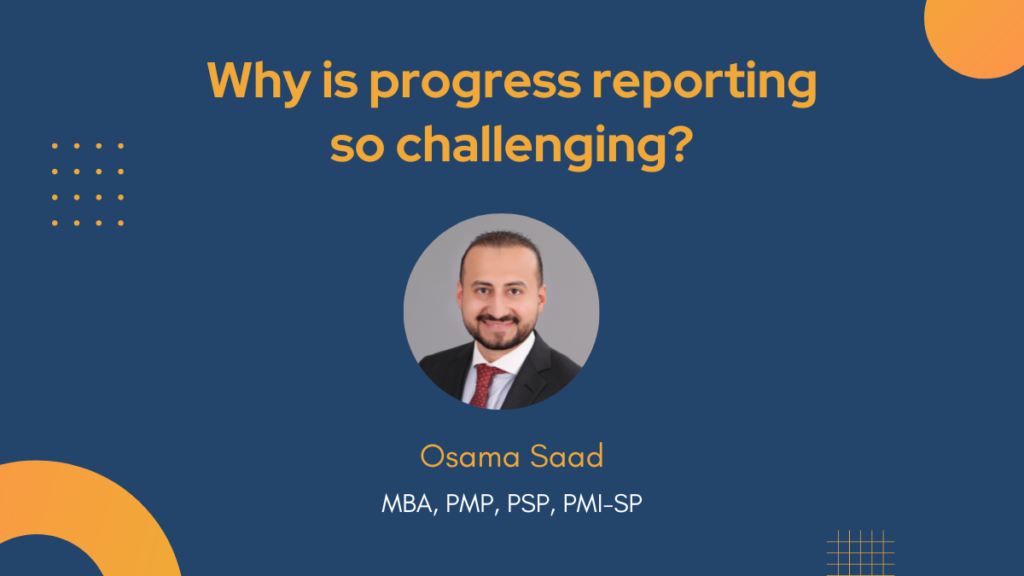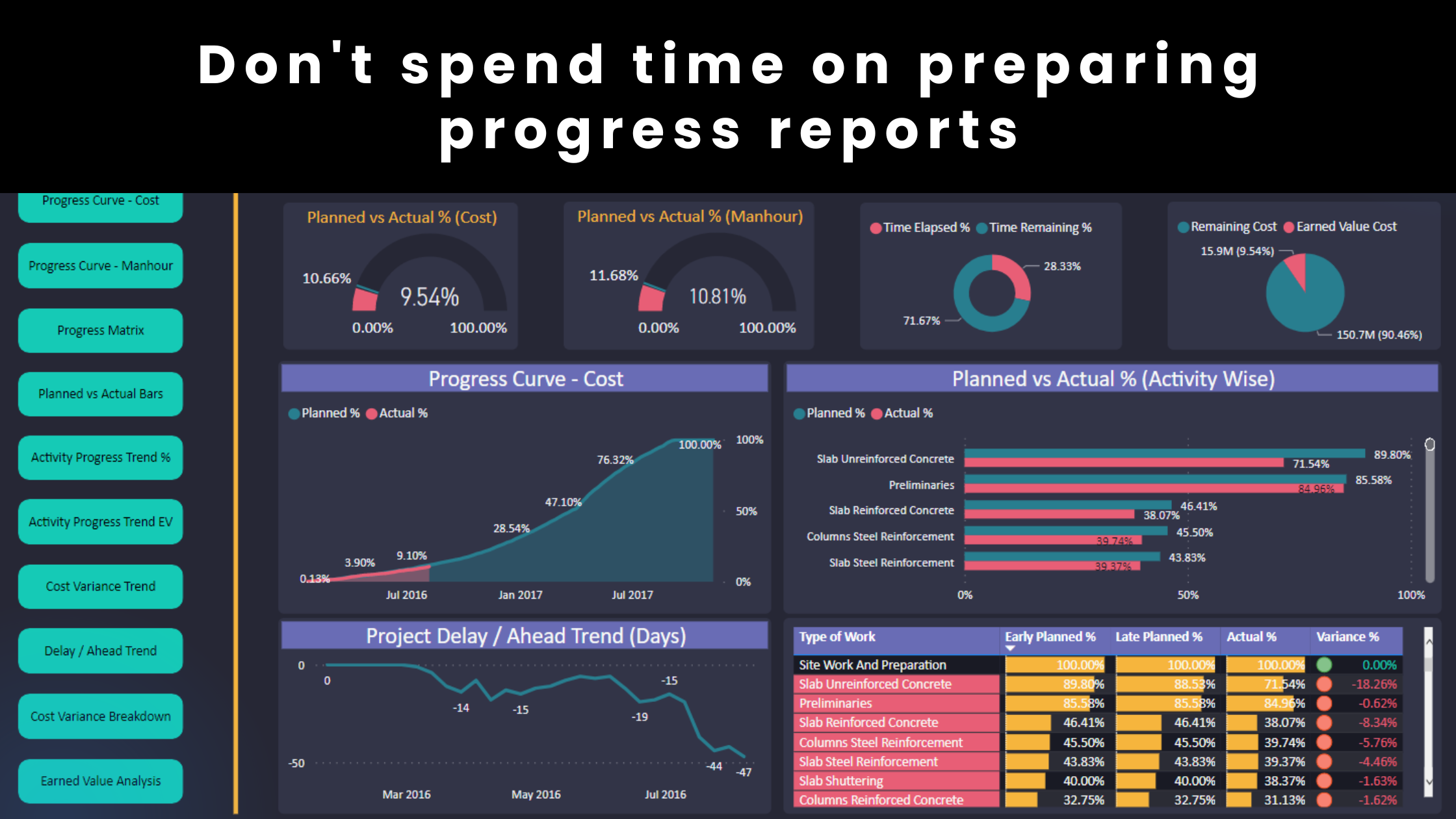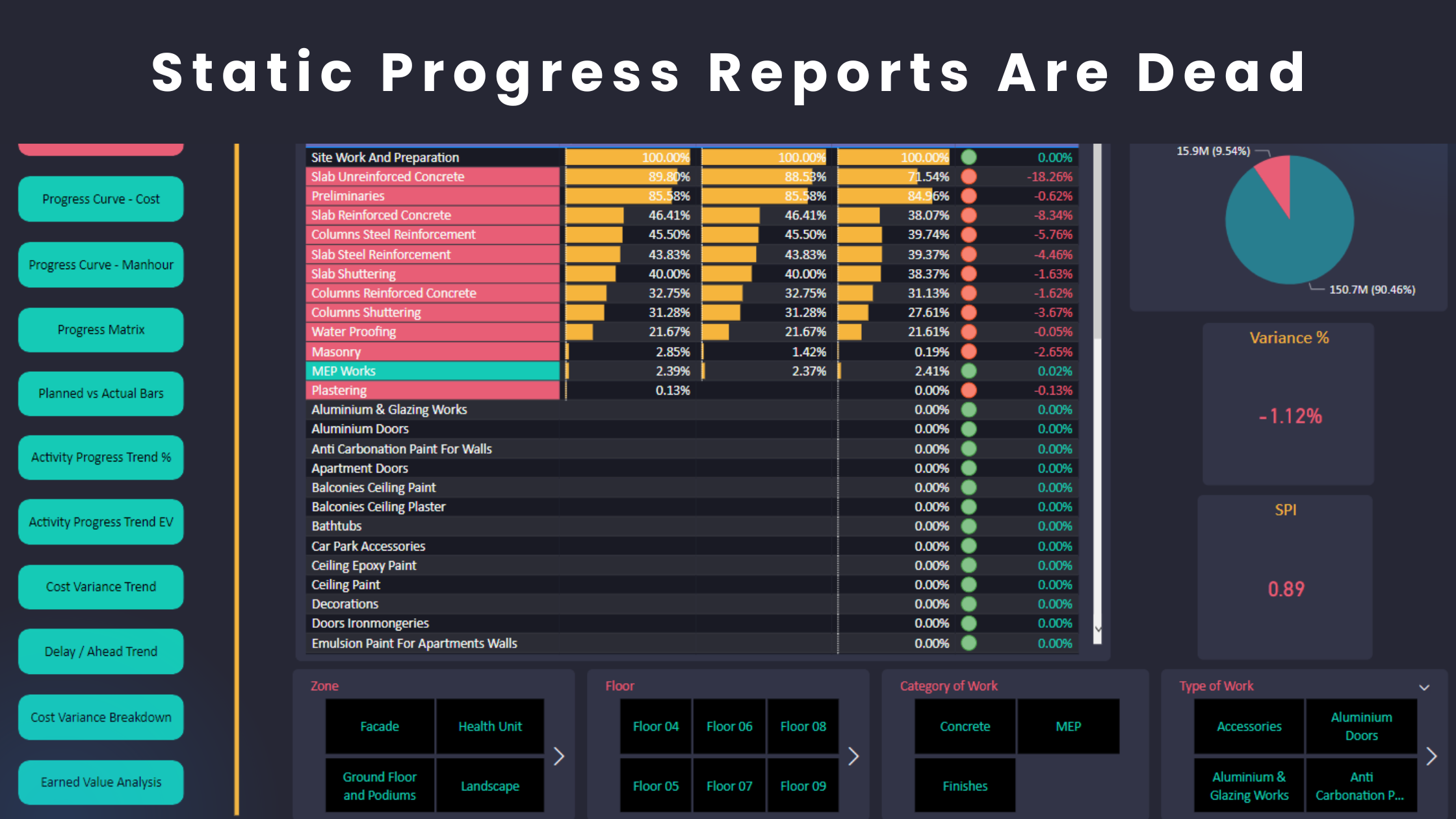Have you tried so hard to prepare a comprehensive valuable report but you wish you could have done better? If yes, you are not alone. Progress reporting is one of the most challenging tasks that planning engineers struggle with but first, let us go over some of the planning engineer’s duties.
- Collect progress data.
- Update the schedule.
- Review the outcome.
- Identify progress delays related to Engineering, Authorities, Construction, etc.
- Develop recovery measures.
- Develop the progress report along with the necessary dashboards.
- Review, format and submit the progress report.
- Prepare the progress presentations and attend meetings.
I will now explain the challenges that planning engineers face when they try to perform these tasks.
Lack of time
Planning Engineers are expected to execute most of the above tasks within 2 days only which is a really short amount of time to get everything done accurately. I have seen many knowledgeable planning engineers who struggle with reporting. Their challenge is not the lack of knowledge; it is the lack of time. Here is a familiar story. Many planning engineers complete the schedule update and want to analyze the progress. They group and filter activities, copy the data to excel, apply formulas and format the report. They rinse and repeat the same process as many times as needed. Construction projects are very complex and typically involve huge investments. It is impossible to identify, analyze and execute everything in the project manually. It is not a feasible task for the human brain, given such a short time frame.

Lack of knowledge
Improving your project control skills, including progress reporting doesn’t start with mastering P6, Power BI or any other tool. It starts with your mindset and core knowledge. If your project control foundations are weak, any software will become useless. You must learn the principles of project control such CPM, Earned Value, Line of Balance (LoB), etc. Moreover, you need to develop a stronger mindset. Here are a few questions to test your mindset.
- Why do we report progress based on both cost and manhour, not cost only?
- Why do we need to have a cost and resources-loaded schedule for progress reporting?
- Why do we need to document schedule changes?
Your answer to the above questions determines how strong of a mindset you have. Finally, effective progress reporting goes far beyond software skills. It requires competent analytical, organization, presentation, communication and contractual skills.

Lack of data analytics knowledge
It took me a long time to realize the importance of data analytics in project control. I spent a long time in my career struggling with getting the results that I want because I felt that I can do better. I applied advanced excel to help myself overcome these issues but it wasn’t enough. I had many attempts to improve myself in this area until I came across one of the most powerful data analytics processors. It is Power BI.
The schedule may consist of thousands of activities. Each activity has many attributes (e.g. activity codes, budgeted total cost, budgeted labor units, Earned Value, Activity % complete, start/finish dates, etc.) Some of these attributes even change every week. Data analytics is a science that allows you to manage such huge sets of data. Combined with technology leverage, data analytics can help planning engineers analyze the progress and prepare reports on both macro and micro levels in a seamless way. Power BI can also provide you with significant leverage against your limited time and effort which will help you overcome issue# 1 above (lack of time). In addition, Power BI allows you to produce an interactive report which has many benefits such as connecting your drawings with the schedule model and analyzing any project area with a click of a button.
Data analytics education for planning engineers has become necessary as the complexity level of the projects increases. You need to build a powerful model that allows you to immediately access ANY information that you want and prepare ANY report that you wish for. The model should be well-developed to include all project control data (even the progress photos).
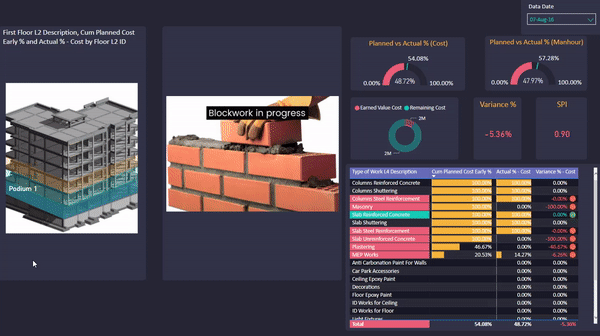
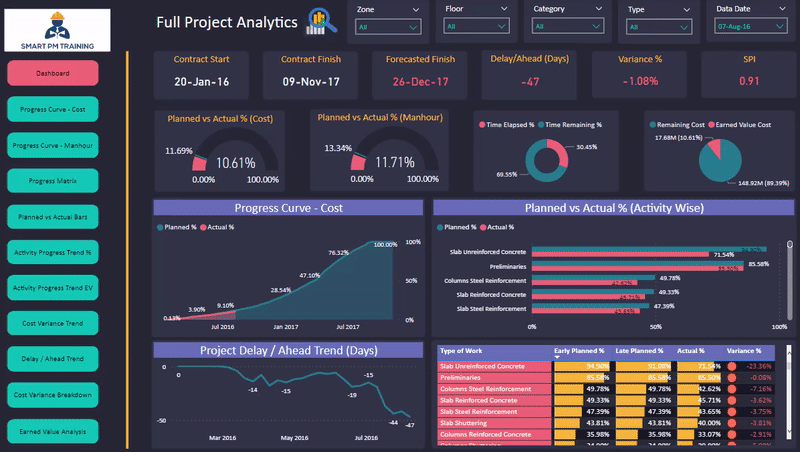
Conclusion
The majority of planning engineers are unable to prepare comprehensive progress reports and provide the expected value to their projects. Planning engineers should first educate themselves on the subject matter and learn more about the core foundations of project control. They should also learn data analytics and find ways to apply leverage using Power BI. This will help them do a lot of work in less time and add significant value to their projects.
Regards,
Osama Saad, MBA, PMP, PSP, PMI-SP
Learn More!
